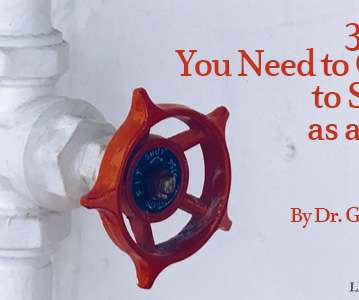3 Things You Need to Control to Succeed as a Leader
Leading Blog
DECEMBER 6, 2019
Then, you need to direct your thinking and feeling patterns, and the behaviors that result, to evaluating reality clearly, making the wisest decisions, and accomplishing your goals. Daniel Kahneman, who won the Nobel Prize for his research on behavioral economics, calls them System 1 and 2. So how do our minds work?
















Let's personalize your content